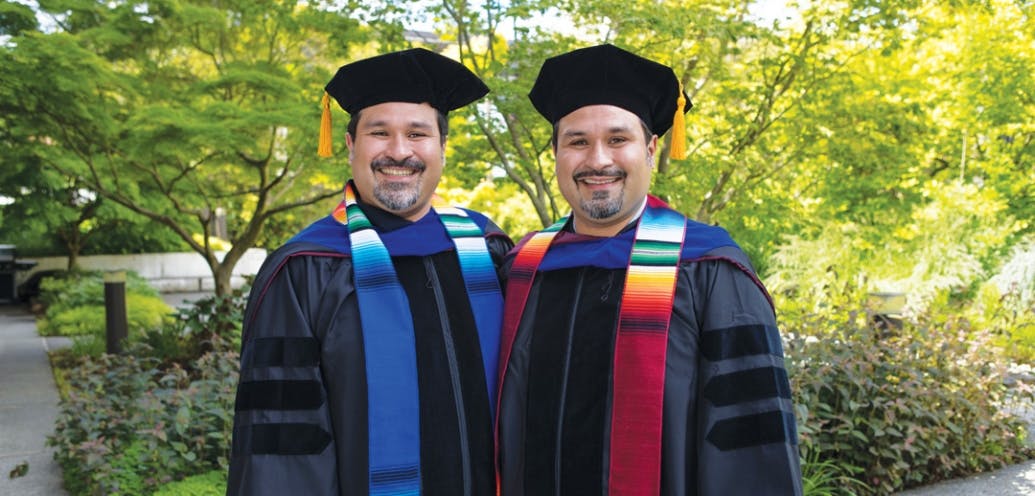Omar and Homero Flores were beating the odds at their birth: not only were they identical twins (against odds of 3 in 1,000), but they were also the first set of twins recorded in 1973 for Fallbrook, California.
From that auspicious beginning, they have become a rarity in their professional world. They are two of the few Hispanic school psychologists who make up only 6 percent of the profession in the U.S., according to a 2017 research summary from the National Association of School Psychologists.
Omar and Homero’s parents, Juan and Morayma, knew from the beginning that the twins had a special destiny. Juan was a bracero, a manual laborer from an impoverished community in Mexico. He was part of the largest foreign worker program in U.S. history, an alliance between Mexico and the U.S. to address the agricultural labor shortage caused by America’s involvement in World War II. Inspired by their father and angered by the poor treatment he and fellow braceros received, Homero and Omar became Chicano activists, fighting injustice and pressing for better wages and living conditions for thousands of braceros and their families.
Homero and his brother believe they are stronger for having walked in the two worlds of Mexican and American culture. “We came from an immigrant farming community,” Homero says of Fallbrook, the “avocado capital of the world.” “We spoke both Spanish and English and helped our parents and other family members defend themselves against prejudice.”
Juan’s central message to his four children, including the twins, was, “Go to school. Get educated so your voice carries weight.”
His children listened. The older brother became an elementary school teacher; the younger sister works in human development.
And the twins? Last June, they earned doctorates from the Seattle Pacific University School of Education. Cher Edwards, associate dean of graduate education, says it was an honor to work with them.
“The Flores brothers exemplify all that the realization of a doctoral degree requires,” says Edwards. “Their cultural tradition of a resilient family support network provided a solid foundation for them.”
For the 18 years prior to that graduation ceremony, the Flores brothers had attended the same schools, shared the same classrooms, and earned the same degrees. Both became school psychologists in the same school district, near Chehalis, Washington. Omar married a school psychologist, Homero a speech therapist. Due in part to their example, many members of their extended families are now pursuing college degrees.
The brothers applaud Seattle Pacific for taking them into the doctoral program and allowing them to be themselves. “People are always trying to separate us,” explains Omar. “Twins in the same program can be intimidating to professors. But Cher Edwards took us on and encouraged us.”
The brothers push one another to excel and celebrate one another’s differences, with one twin’s strengths and weaknesses complementing the other’s.
Omar is the more vocal and assertive, he says, while Homero “provides the stability, like the legs under a table.” They also hope that, together, they send a powerful message to young children who share their Hispanic culture.
“There is power in our faces,” says Omar, his words immediately affirmed by Homero. “For kids to see our faces in the education system is for them to see themselves in the education system, to see that poverty can be overcome through education, and to see that it is possible to stay out of trouble and balance street savvy with academic savvy.”
For the Flores twins, doctorates in hand, the possibilities have expanded and now encompass school administration and teaching, as well as school psychology. For now, both are full-time school psychologists, Omar in the Olympia School District and Homero in Washington’s Educational Service District 113. But both are in agreement that “Professor Flores” has a nice ring to it, too.




